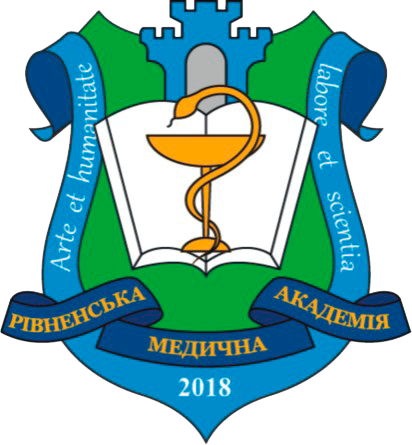THE CURRENT STATE OF IMPLEMENTING NURSING CARE BASED ON THE NURSING PROCESS AT RIVNE MEDICAL ACADEMY
DOI:
https://doi.org/10.32782/health-2023.4.41Keywords:
nursing, nursing process, nurse, nursing education, nursing modelAbstract
The purpose of the study was to determine the effectiveness of their own developments in the absence of legally approved all-Ukrainian standards of nursing care for patients based on the nursing process. Materials and Methods. Throughout the years of independence Ukraine has declared the reform of practical health care, including nursing. The most significant steps to reorganize the training and professional activities of a nurse were proclaimed in the “Nursing Development Program of Ukraine”, which clearly states that the main direction of nursing reform is the training of a highly qualified specialist of a new formation who can make decisions within their competence independently, on the basis of the nursing process, based on developed and legally approved standards. Unfortunately, the reform of the nursing industry, including the development of standards of practice in our country, has been suspended for objective reasons. For this reason, we published the manual “Theoretical and Practical Basics of Nursing Care for Patients” and developed educational and methodological materials on its basis within the competence of a nurse (an alternative to standards). A pedagogical experiment was conducted to evaluate the effectiveness of the use of instructional materials in the training of bachelor’s degree nurses in the subject “Fundamentals of Nursing”. The experiment involved 40 students, 20 of whom (control group) studied according to the generally accepted teaching methodology and 20 (main group), who additionally worked on the patient care instructions developed by us. At the end of the experiment, during the mathematical analysis of the results, students of the main group showed better results compared to the control group: the percentage of theoretical knowledge increased by 7.19%, qualitative performance by 20.4%, average score by 0.39 units; the corresponding indicators of practical training also increased – of practical skills by 25.81%, qualitative performance by 24.47%, average score by 0.48 units. Conclusions. The introduction of educational and methodological instructions for patient care in the educational process of training bachelor’s nurses, in the absence of legally approved all-Ukrainian standards, can improve the quality of training of future specialists.
References
Almeida, B.P., Dias, F.S.B., Cantú, P.M., Duran, E.C.M., & Carmona, E.V. (2019). Attitudes of nurses from a public teaching hospital regarding the nursing process. Atitude dos enfermeiros de um hospital público de ensino quanto ao processo de enfermagem. Revista da Escola de Enfermagem da U S P, 53, e03483. https://doi.org/10.1590/S1980-220X2018018203483.
Goncalves, P.D., Sampaio, F., Sequeira, C.A., & Paiva e Silva, M.A.T. (2020). Data, diagnoses, and interventions addressing the nursing focus “delusion”: A scoping review. Perspectives in Psychiatric Care, 56(1).
Mendu, M.L., Michaelidis, C.I., Chu, M.C., Sahota, J., Hauser, L., Fay, E., … & Britton, K. (2018). Implementation of a skilled nursing facility readmission review process. BMJ Open Quality, 7(3), e000245.
Gilissen, J., Pivodic, L., Wendrich-van Dael, A., Gastmans, C., Vander Stichele, R., Engels, Y., … & Van den Block, L. (2020). Implementing the theory-based advance care planning ACP+ programme for nursing homes: study protocol for a cluster randomised controlled trial and process evaluation. BMC Palliative Care, 19, 1–18.
Alqahtani, N., Oh, K.M., Kitsantas, P., & Rodan, M. (2020). Nurses’ evidence‐based practice knowledge, attitudes and implementation: A cross‐sectional study. Journal of clinical nursing, 29(1–2), 274–283.
Lotfi, M., Zamanzadeh, V., Valizadeh, L., Khajehgoodari, M., Ebrahimpour Rezaei, M., & Khalilzad, M.A. (2020). The implementation of the nursing process in lower‐income countries: An integrative review. Nursing Open, 7(1), 42–57.
Sepahvand, F., Mohammadipour, F., Parvizy, S., Zagheri Tafreshi, M., Skerrett, V., & Atashzadeh‐Shoorideh, F. (2020). Improving nurses’ organizational commitment by participating in their performance appraisal process. Journal of nursing management, 28(3), 595–605.
Aloisio, L.D., Baumbusch, J., Estabrooks, C.A., Bostrom, A.M., Chamberlain, S., Cummings, G.G., … & Squires, J.E. (2019). Factors affecting job satisfaction in long‐term care unit managers, directors of care and facility administrators: A secondary analysis. Journal of Nursing Management, 27(8), 1764–1772.
Anrys, P., Strauven, G., Roussel, S., Vande Ginste, M., De Lepeleire, J., Foulon, V., & Spinewine, A. (2019). Process evaluation of a complex intervention to optimize quality of prescribing in nursing homes (COME-ON study). Implementation Science, 14(1), 1–15.
Lotfi, M., Zamanzadeh, V., Valizadeh, L., Khajehgoodari, M., Ebrahimpour Rezaei, M., & Khalilzad, M.A. (2020). The implementation of the nursing process in lower‐income countries: An integrative review. Nursing Open, 7(1), 42–57.
Goncalves, P.D., Sampaio, F., Sequeira, C.A., & Paiva e Silva, M.A.T. (2020). Data, diagnoses, and interventions addressing the nursing focus “delusion”: A scoping review. Perspectives in Psychiatric Care, 56(1).
Bulechek, G.M., Butcher, H.K., Dochterman, J.M.M., & Wagner, C. (2012). Nursing interventions classification (NIC). Elsevier Health Sciences.
Gencbas, D., Bebis, H., & Cicek, H. (2018). Evaluation of the efficiency of the nursing care plan applied using NANDA, NOC, and NIC linkages to elderly women with incontinence living in a nursing home: a randomized controlled study. International journal of nursing knowledge, 29(4), 217–226.





